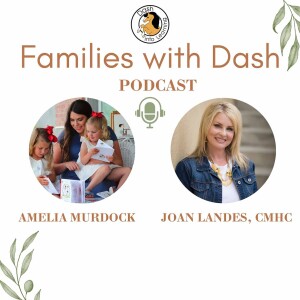
Thursday Nov 10, 2022
006 Is Your Child a Praise Junkie?
Show notes week 6 is your child a Praise Junkie?
Definition of "Praise Junkie"
One of the downsides of positive parenting
Cultural backdrop of overpraising children:
◦ BF skinner research in positive reinforcement in 1920s
◦ Definitions of positive reinforcement, negative reinforcement, Punishment
◦ Permissive parenting in the 1960s as a pendulum shift
◦ Motivating with positive reinforcement schedules rather than negative reinforcement or punishment.
◦ Self esteem movement— can be taken too far and create narcissistic traits.
◦ Self-confidence comes from competence and skills especially for boys. Empty Praise without achievement causes child to doubt their parent because the child understands the truth.
◦ Filling Mother’s needs for validation (generally the Mom!)
◦ Trophies for everyone on the team
Problems:
◦ Praise loses its effectiveness over time and must be increased to get initial effect
◦ Kids can become dependent
◦ Older kids can become dismissive of a parental praise
◦ Children experience the world as strangely harsh and non-supportive compared to parents’ constant fix of praise
◦ But human brains are much more easily motivated by fear than reward, so if we only use positive reinforcement we have an unnecessarily big job.
◦ Human brains perceive pain and pleasure in relative terms—- so without a counterbalance to pleasure, a brain has difficulty sensing pleasure.
◦ Overpraising also orients the child to external validation rather than internal validation. It leaves them vulnerable to the opinions of others (either good or bad)
◦ Charlotte Mason quote about internal validation
Solutions
◦ Praise less effusively and less often. Make your praise a more valued commodity
◦ Model self-validation
◦ Give the child permission : “I would be proud of myself! Are you proud of yourself?”
◦ Give them the words for self validation, “I’ll bet you feel very accomplished, very proud of yourself— eh?”
◦ Ask for introspection : “How does it feel to have accomplished that ? Kinda awesome?”
◦ After an accomplishment ask: “What do you think? “ If they hesitate a great deal, say “If I were you I’d be amazed at myself!” Or another adverb: proud, happy, hopeful, satisfied, ecstatic, pleased.” Be curious.
◦ When kids say I don’t know
◦ Use understated body language: a smile, a wink, Pat on the shoulder, thumbs up, nod of the head. Save the touchdown celebration for something miraculous
◦ Research shows many high achieving families (Tiger Mothers) use a great deal of shame associated with disappointing parents. Instead we should let our attachment relationship provide the motivation not to disappoint.
◦ Research also shows a great way that some cultures motivate children is two fold: 1.Tell the child they are gifted in some way.
2. Because of that gift, they must not waste their talent. And that they can always do a little better.
No comments yet. Be the first to say something!